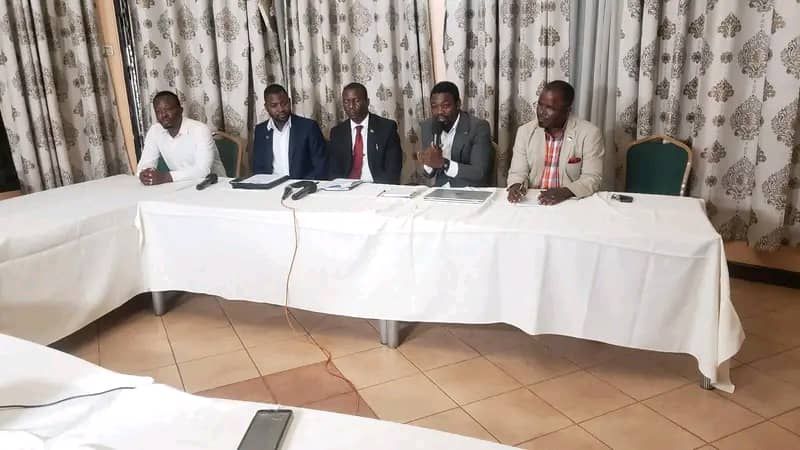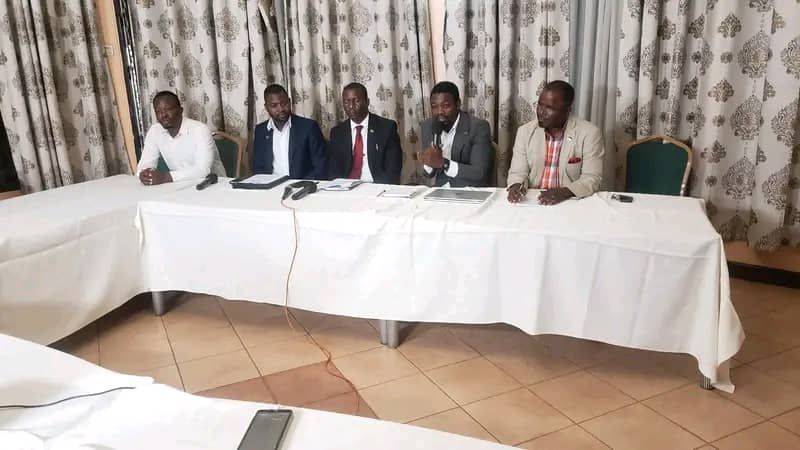By Burnett Munthali
Some Civil Society organizations in the country have accused the Director of Public Prosecutions (DPP) Masauko Chamkakala of abusing his powers on discontinuance of criminal cases and have called for urgent reforms to protect the integrity of the prosecutorial process.
In a joint statement signed by National Advocacy Platform(NAP) Chairperson Benedicto Kondowe, released on Tuesday, the CSOs are also calling on President Lazarus Chakwera to use his powers as provided in the constitution to among others fire Chamkakala.

The statement by the CSOs comes after the office of the DPP discontinued a number of criminal cases including the corruption cases involving Vice President Dr Saulos Chilima, former President Dr Bakili Muluzi and Paramount Holdings Limited.
According to the CSOs, the recent decisions by the DPP to discontinue a number of criminal cases raises serious questions and there is need to put in place measures that would ensure there is no abuse of these powers.
When contacted, Chamkakala said he could not comment on the matter.
Meanwhile, the CSOs have given the anti-corruption bureau 14 days to update Malawians on its position regarding the discontinued cases and disclose the amount of money spent on investigating and prosecuting these matters.
Section 77 (i) states that: “In any criminal proceedings, and at any stage thereof before judgement is pronounced, the Director of Public Prosecutions may enter a discontinuance, either by stating in court or informing the court in writing, that the State intends that the proceedings shall not continue, and thereupon.”
The Constitution endows the President with an illimitable power to remove all officers in whose appointment he has participated, with the exception of federal judges.
Dr.Saulos Chilima was arrested in November 2022 on allegations that he accepted money in exchange for awarding government contracts. He denied the charges.
The latest move has provoked questions over the government’s handling of prosecutions for alleged corruption.
Abuse of power or abuse of authority, in the form of “malfeasance in office” or “official abuse of power”, is the commission of an unlawful act, done in an official capacity, which affects the performance of official duties.
*The 1994 Constitution of the Republic of Malawi*
As Malawians opted for a new Constitution in 1994 the Constitution attempted to protect the office of the
Director of Public Prosecution by ensuring that there should be no interference in the performance of his or
her job.
This was done by providing procedures for appointment and removal from office of the Director of
Public Prosecution in the Constitution itself.
The Constitution thereby provides that appointment of the
Director of Public Prosecutions shall be made by the President and confirmed by the Public Appointments
Committee of Parliament.
Where the President is inclined to remove a Director from office, the same should
only be based on incompetence; or where the Director is compromised in the exercise of his or her duties to
the extent that his or her ability to exercise his or her functions impartially is in serious question.
These Constitutional provisions attempt to provide and ensure that the Director has general protection in the
exercise of his or her duties in all matters, including corruption matters.
It was however, once more observed by the citizenry that much as the Director of Public Prosecutions had
Constitutional protection there were a lot of presumed corruption cases that were not being prosecuted.
These observations resulted in the assembling as well as coming into force of the Corrupt Practices Act 1995.



